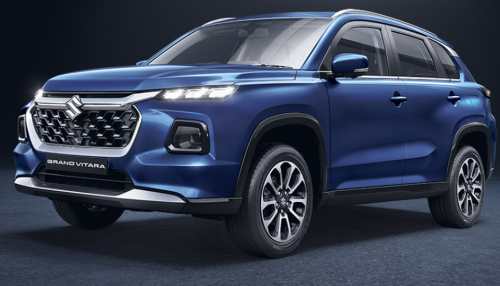- News>
- Auto
EV Slowdown? Hybrids And CNG Vehicles To Outshine EVs In Medium-Term, Says Report

Hybrids And CNG Vehicles: The hybrid vehicles in India including CNG and other alternative vehicles will be more successful in the medium term as compared to the electric vehicles, highlights a report by UBS, an investment banking firm.
Hybrids And CNG Vehicles In Medium-Term: The hybrid vehicles in India including CNG and other alternative vehicles will be more successful in the medium term as compared to the electric vehicles, highlights a report by UBS, an investment banking firm. The report noted that despite various incentives, launches, and price reductions, the share of EVs in the passenger car market remains below 2.5%, lagging behind strong hybrids.
"We expect hybrids/CNG and other alternative fuels to be more successful over the medium term," said the report. The report also added that India's passenger vehicle (PV) industry is expected to see revenue growth ranging from high-single to low-double digits over the fiscal years 2024 to 2027.
This growth is anticipated to be driven by a combination of a 6-7% compound annual growth rate (CAGR) in vehicle volumes and a 3-4% CAGR in average selling prices (ASPs). The report suggests that the demand will be primarily fueled by the increasing popularity of SUVs, while entry-level cars may not experience significant recovery until at least fiscal year 2026.
Despite a current slowdown in demand, the report forecasts a 7% CAGR for both two-wheeler (2W) and car volumes over the same period, which aligns with the real GDP growth rate. This growth is expected to be supported by a rise in the popularity of 125cc two-wheelers and SUVs, reflecting a broader trend towards premiumization in the vehicle market.
"We expect India's PV industry to register high-single to low-double-digit revenue growth over FY24- 27, led by 6-7% volume CAGR and 3-4% ASP CAGR. We expect demand growth to be led by SUVs, and are not factoring in a turnaround in entry-level cars at least till FY26" said the report.
For commercial vehicles (CVs), the report predicts a recovery starting in the second half of fiscal year 2025, with volume growth rates projected at 1%, 8%, and 8% for fiscal years 2025, 2026, and 2027, respectively.
The report also added that EVs are set to play a pivotal role in shaping the future of the industry. It anticipates rapid adoption of EVs in the two-wheeler segment over the medium term, while the transition for passenger cars will be more gradual.
By 2030, it is estimated that 40% of two-wheelers and 15% of cars sold will be electric. Currently, the total cost of ownership (TCO) for electric two-wheelers is already more favorable compared to internal combustion engine (ICE) vehicles, even with recent significant reductions in FAME-2 incentives.
"We see rapid adoption of EVs in 2W over the medium term, while we expect it to be gradual for cars. We estimate 40%/15% of 2W/cars sold in 2030 to be EVs" the report added.
